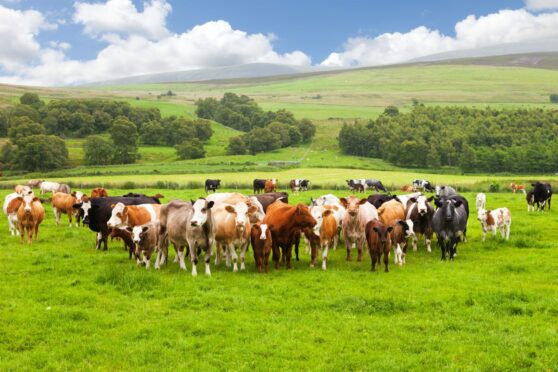Farmers bringing cattle into Scotland will face tougher measures from next month to reduce the risk of spreading Bovine Tuberculosis (TB) and to protect the country’s official TB-free status.
From May 18, changes to legislation will require stricter pre-movement testing of cattle, adding extra precautions for animals coming from areas of higher risk of infection.
In addition, compensation will be reduced for any unclean cattle slaughtered for TB control purposes.
A new definition for isolation will also be introduced and compensation will be reduced for cattle which are not properly isolated. It’s hoped this will strengthen the protection of the main herd against onward spread of infection from any reactors or suspect reactors.
Eligible cattle will require a clear pre-movement test within 30 days prior to the movement to Scotland if tested after May 18. This requirement was previously 60 days.
Additional changes also mean that a negative TB test in a herd under movement restrictions will no longer be accepted as a qualifying pre-movement test, even if the test allows these restrictions to be lifted.
Mairi Gougeon, rural affairs secretary, said the legislative changes are part of a comprehensive, practical and proportionate programme of measures to minimise the risks from all potential sources of infection and reduce the risk of disease spread.
“Although Scotland is officially TB free, cases do still occur and breakdowns are extremely disruptive, upsetting and distressing for cattle owners,” she said.
“We are committed to maintaining Scotland’s low TB infection rates and OTF status, which is crucial to the success of our cattle industry.
“These legislative changes are part of a comprehensive, practical and proportionate programme of measures to minimise the risks from all potential sources of infection and reduce the risk of disease spread as far as possible.”
NFU Scotland’s (NFUS) vice-president Alasdair Macnab, said Scottish producers are committed to keeping TB out of Scotland.
“NFUS welcomes the Scottish government’s commitment to continually reviewing the processes in place to protect Scotland’s cattle herd and to make sure they remain fit for purpose,” he said.
“The changes to the pre-movement test requirements and improved clarity around isolation are being introduced following a consultation process and should offer increased confidence to keepers.
“The union urges Scottish cattle keepers to remain aware that the greatest risk of introducing TB into Scotland is from cattle movements, and to continue to ensure their sourcing policies will minimise the risk to their own holding and the national herd.”
Scotland was recognised as being officially TB free (OTF) by the European Commission in September 2009.

